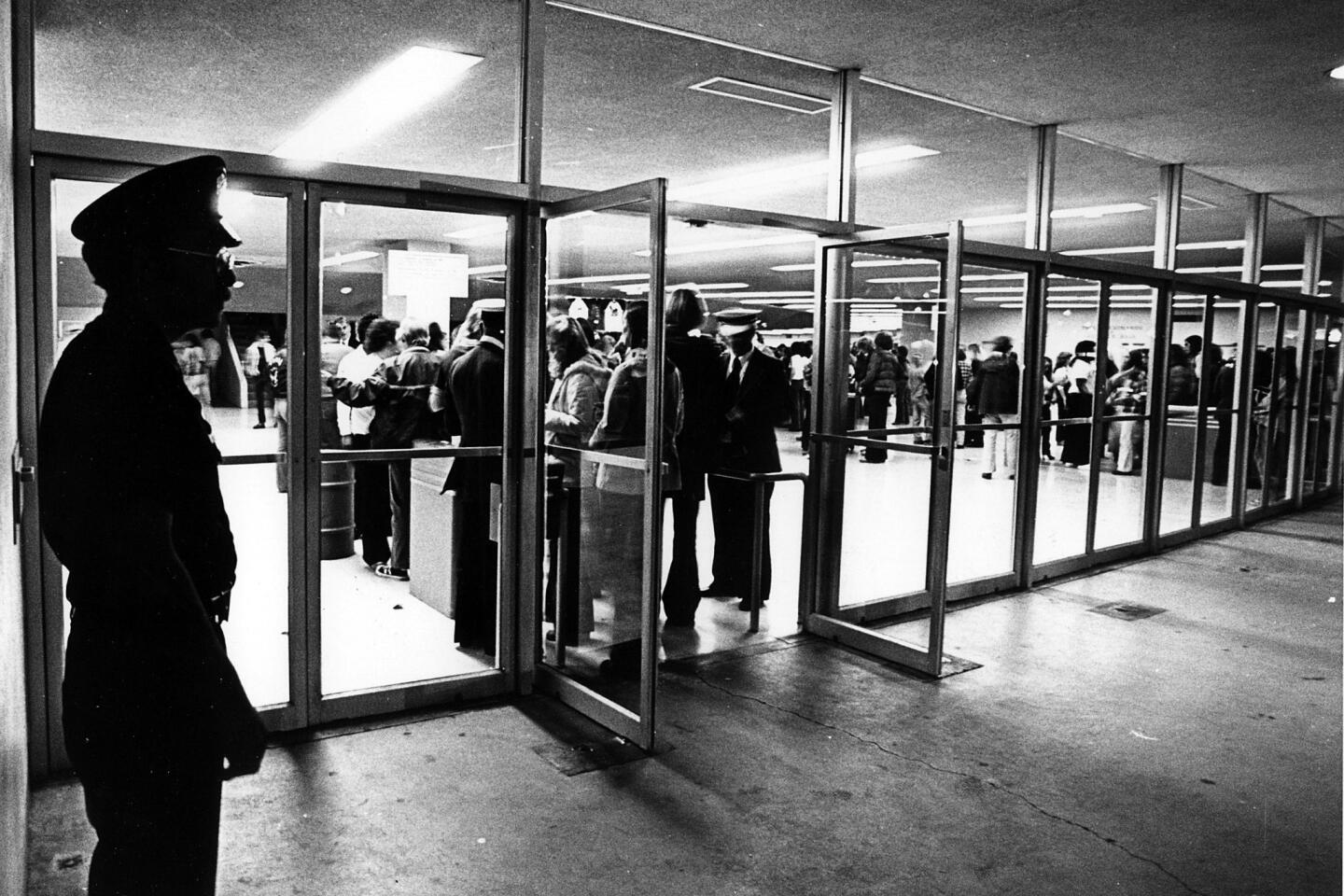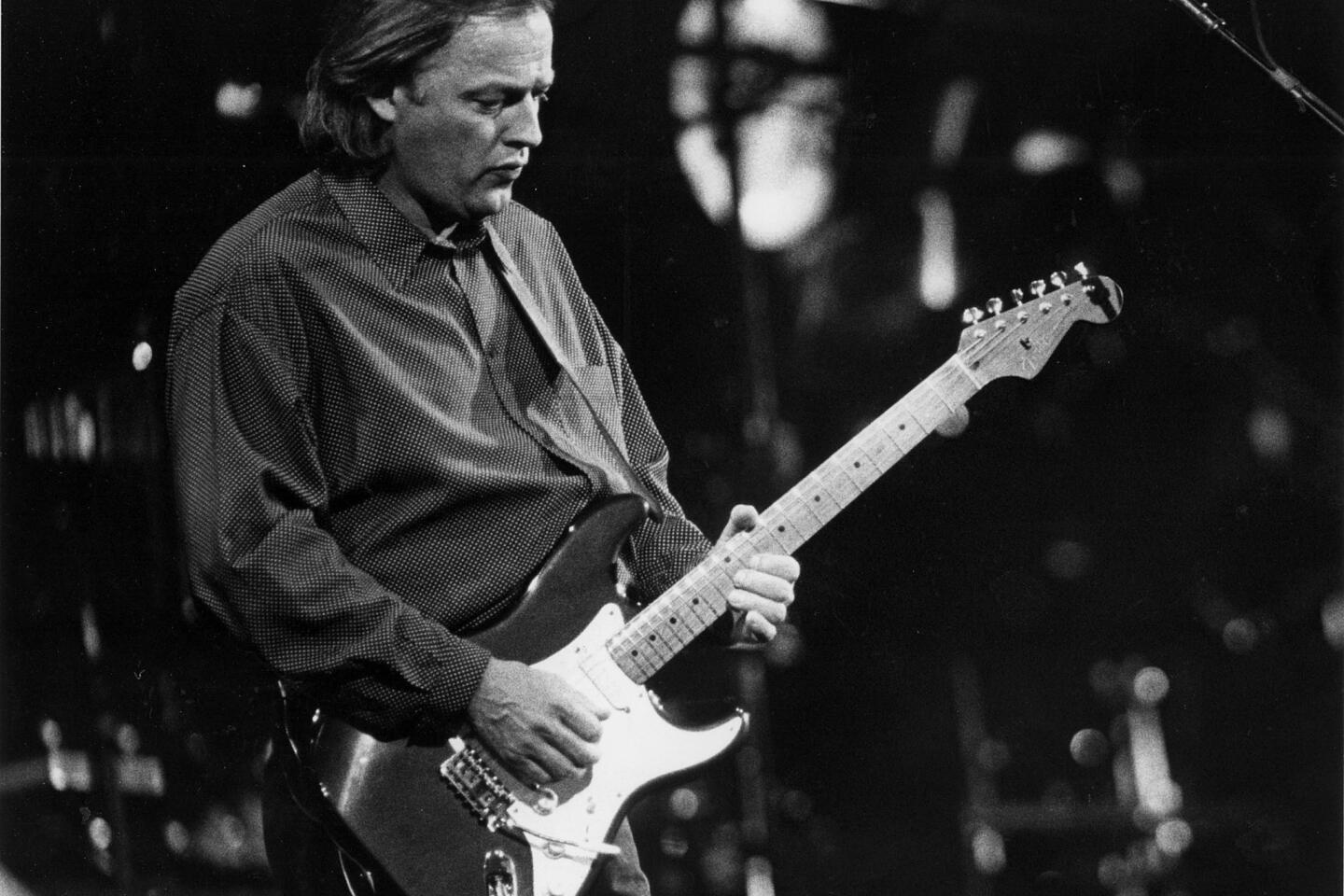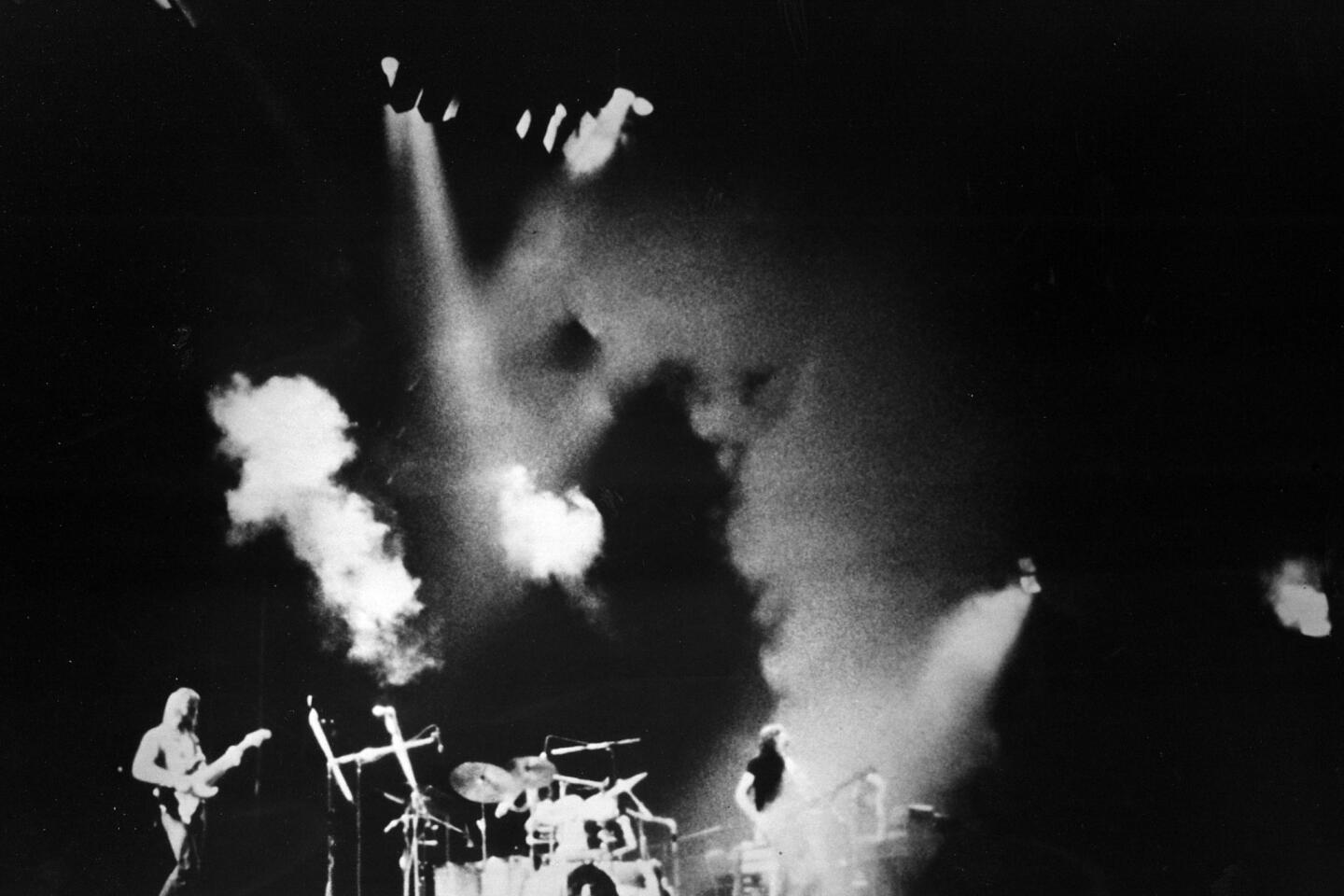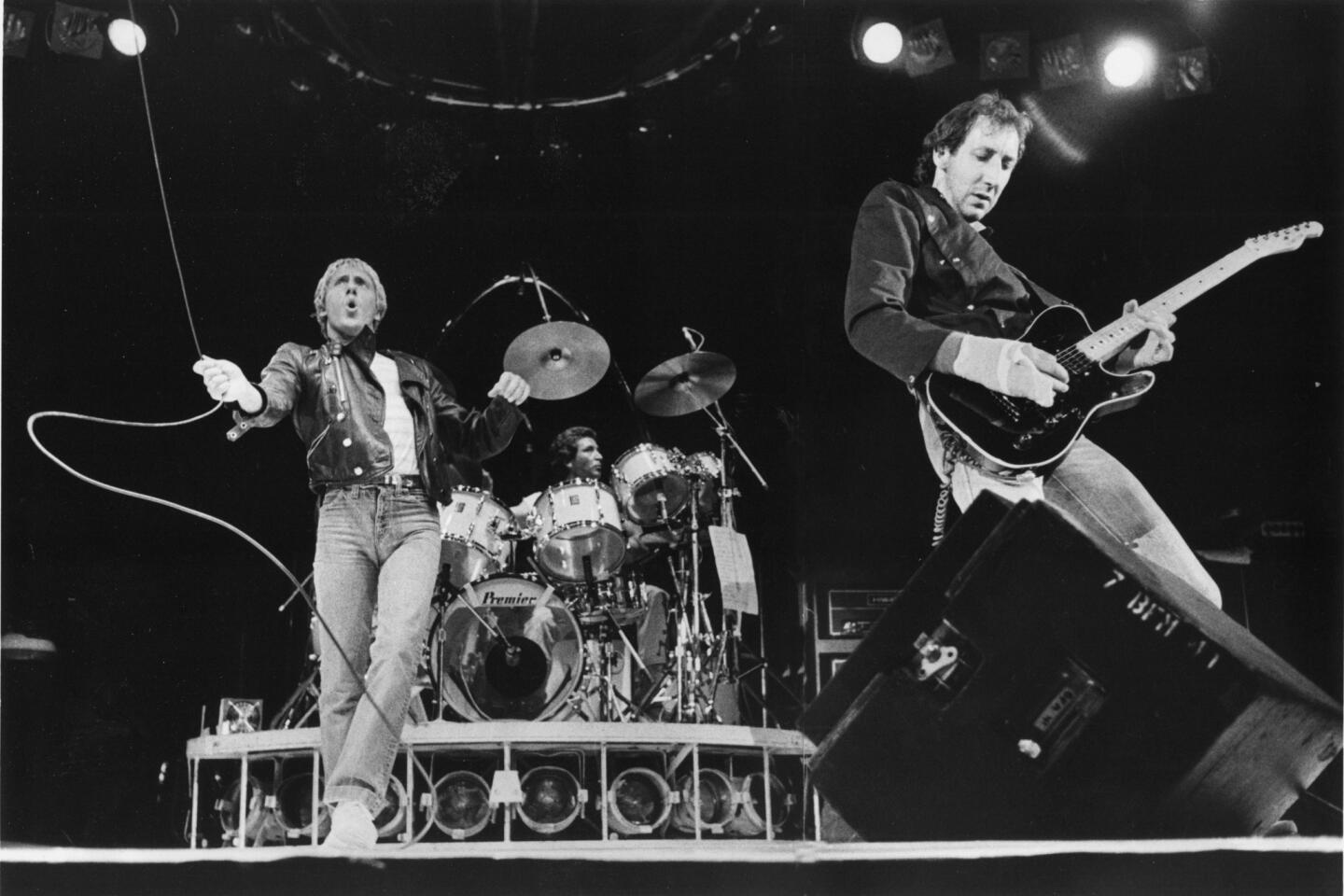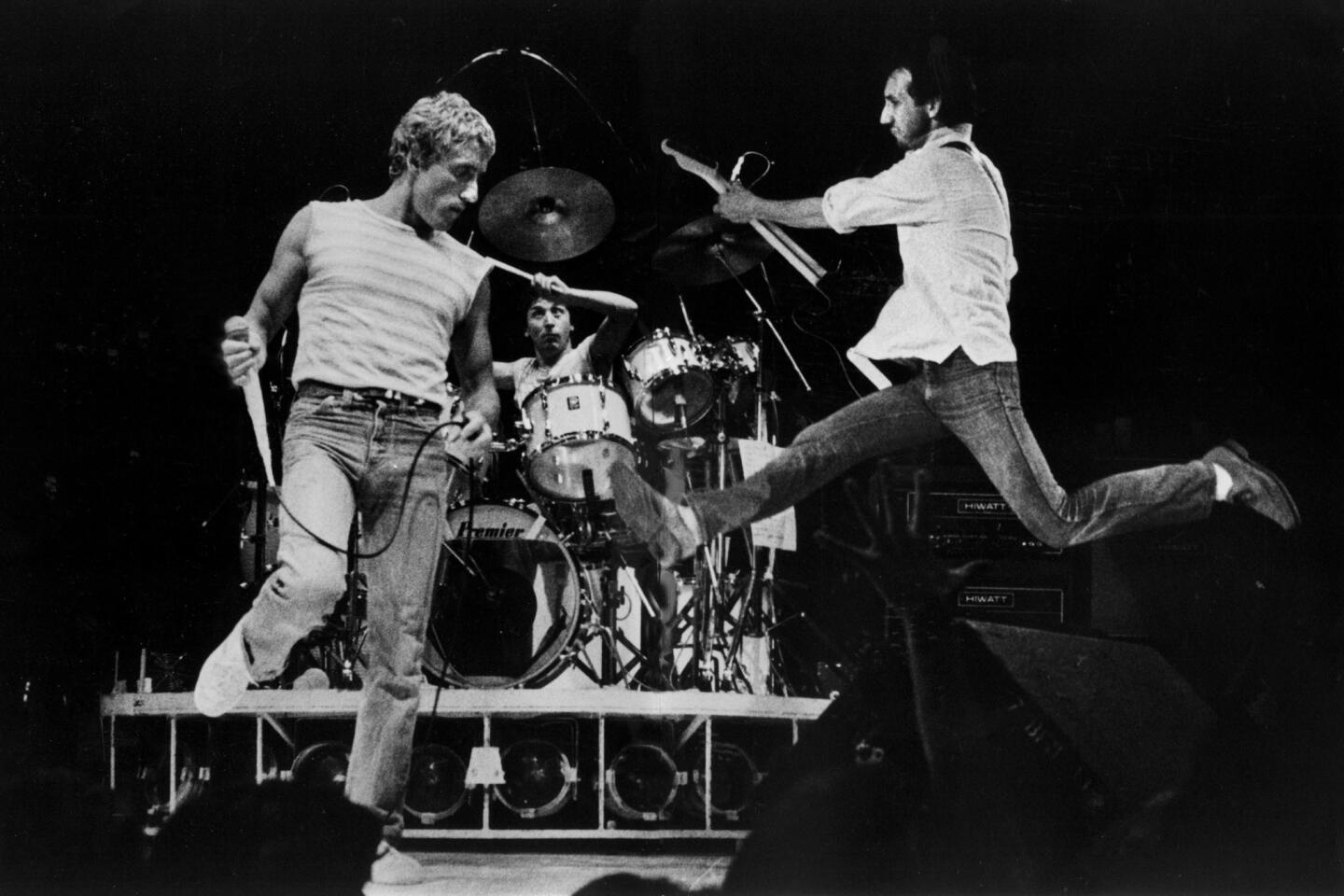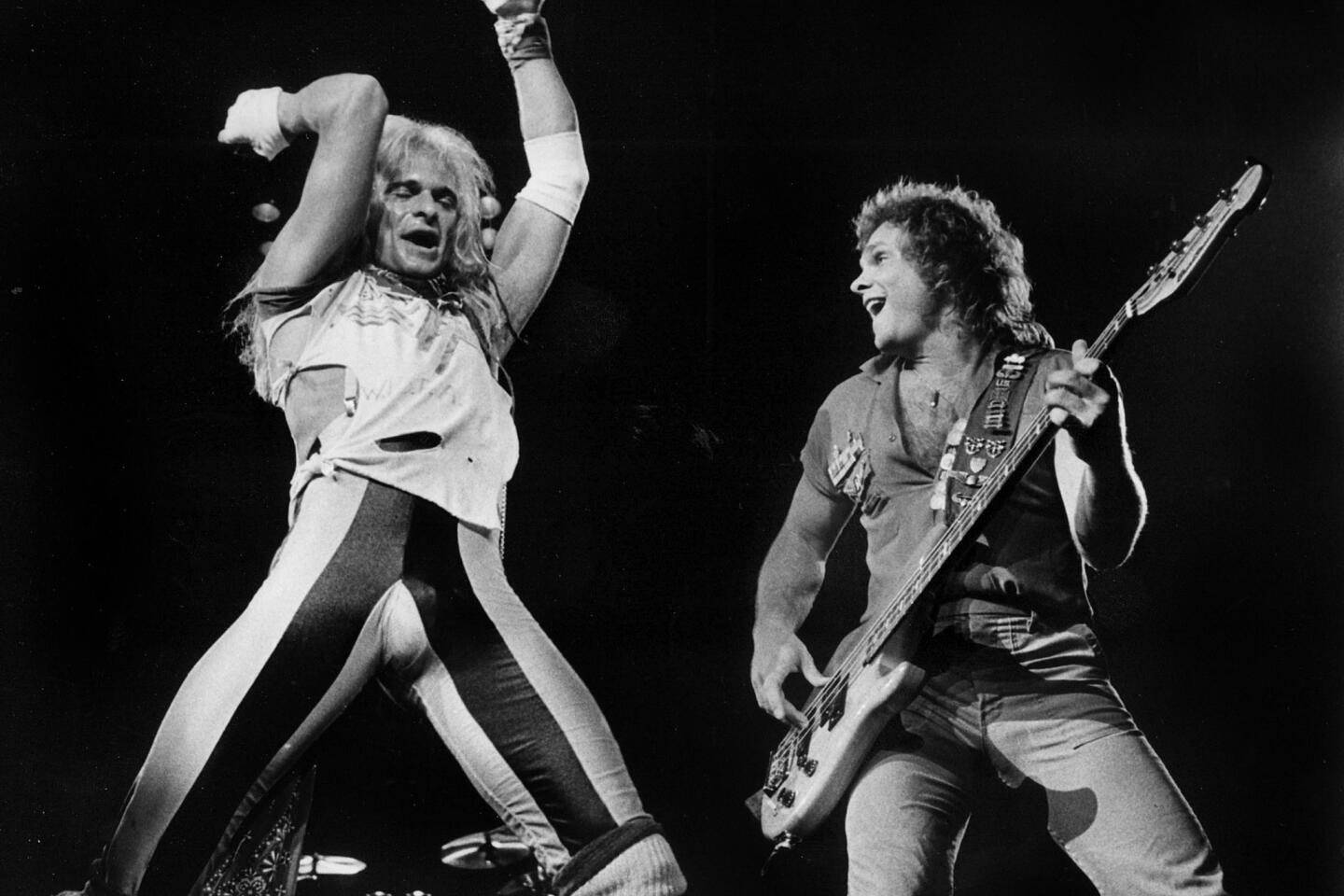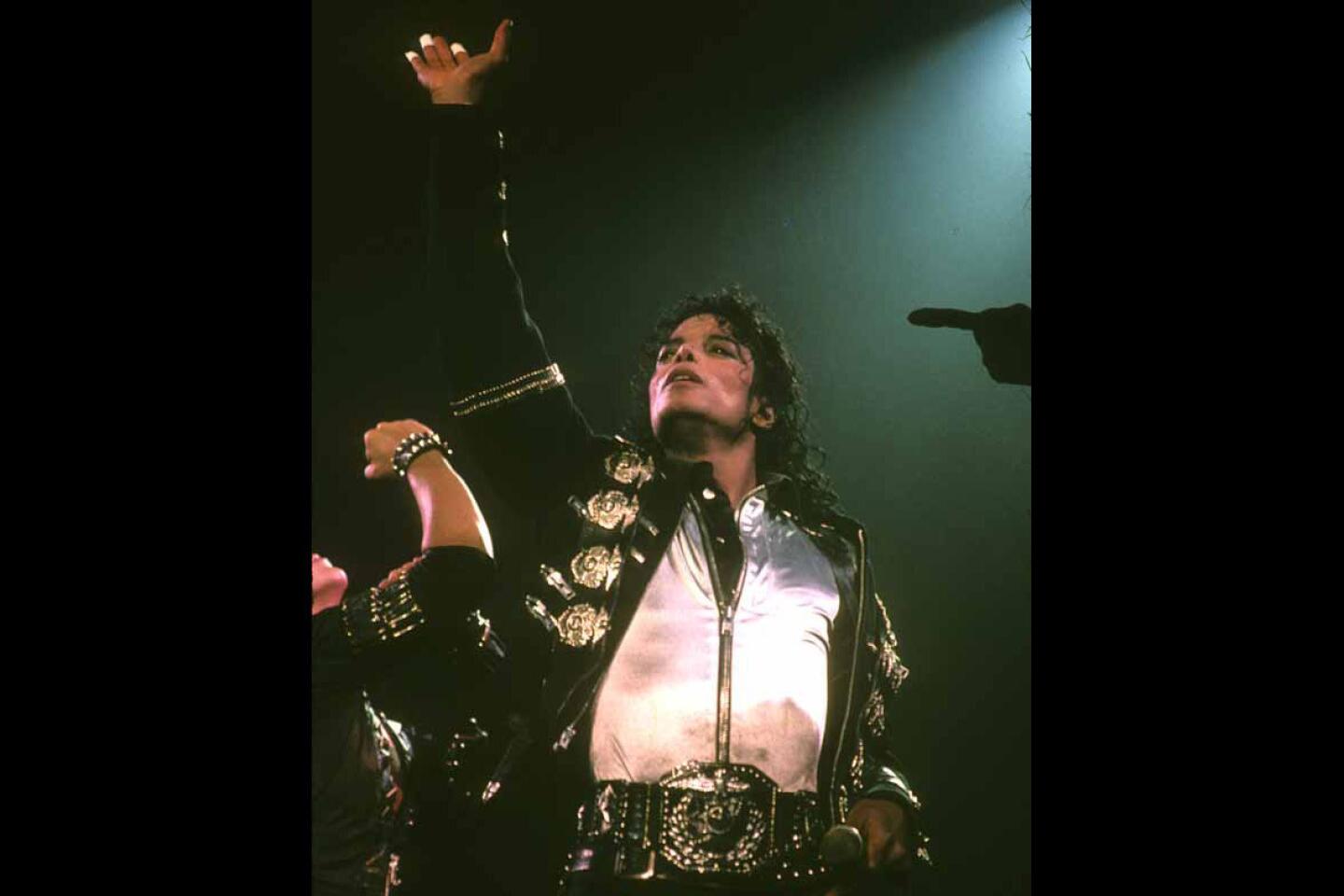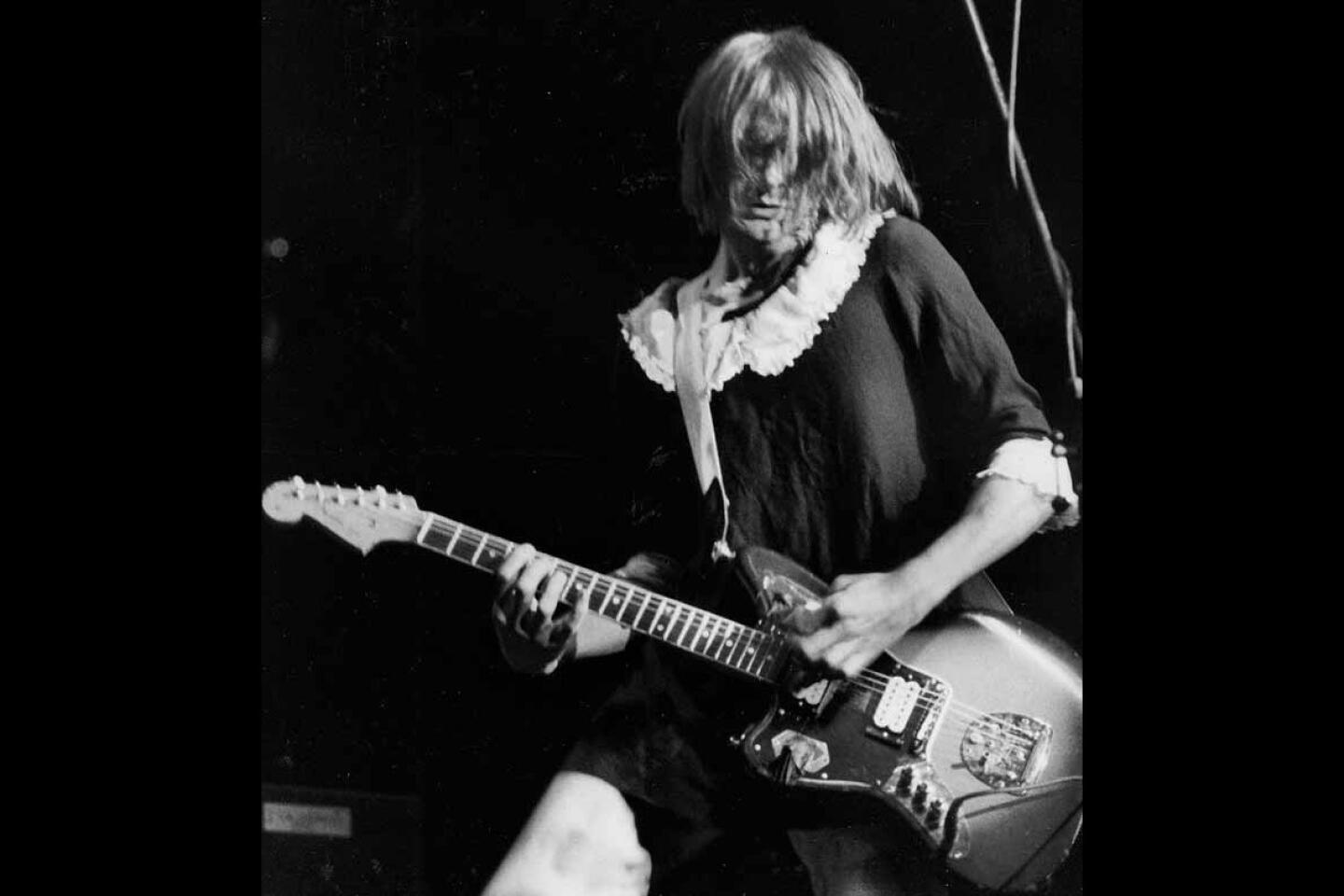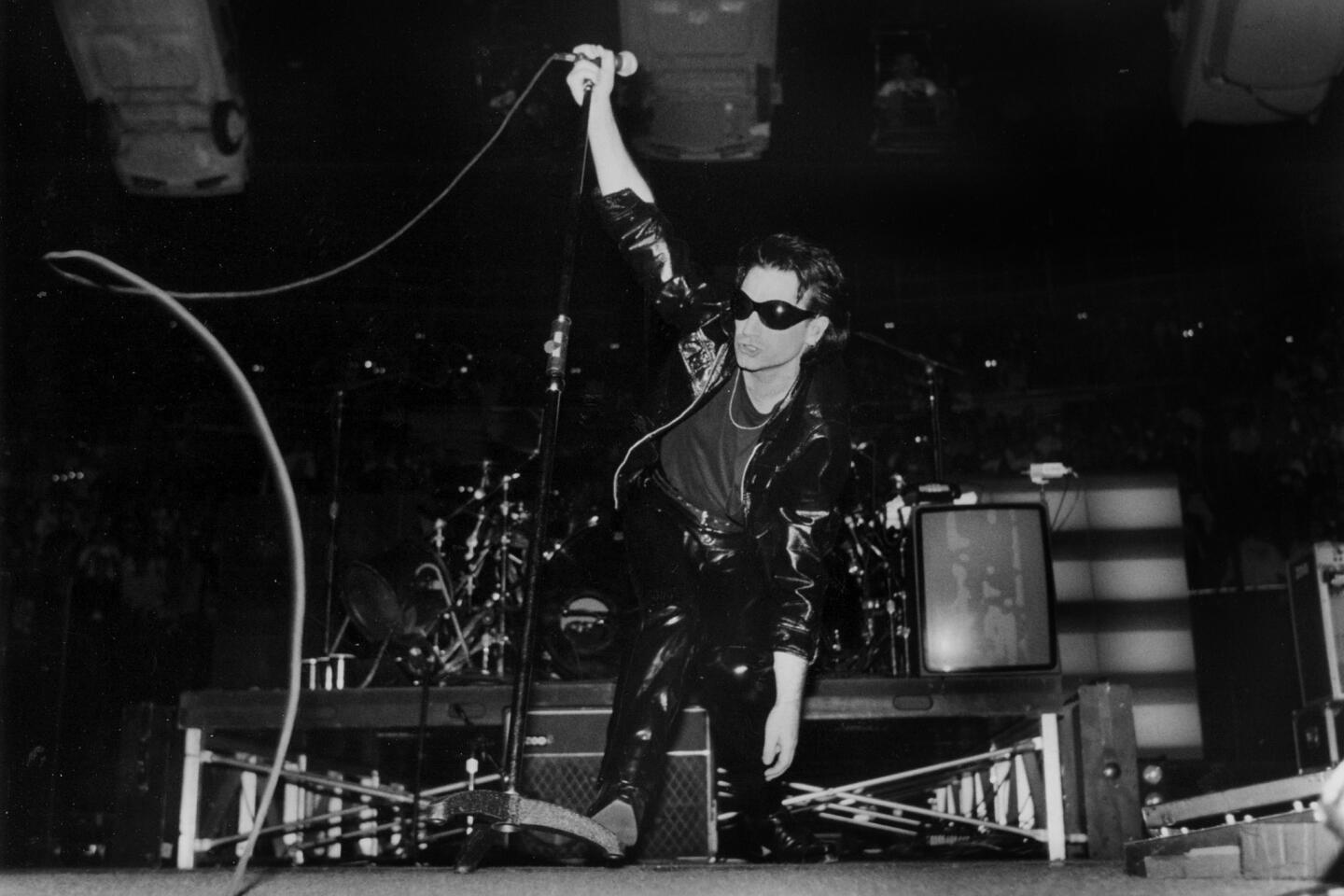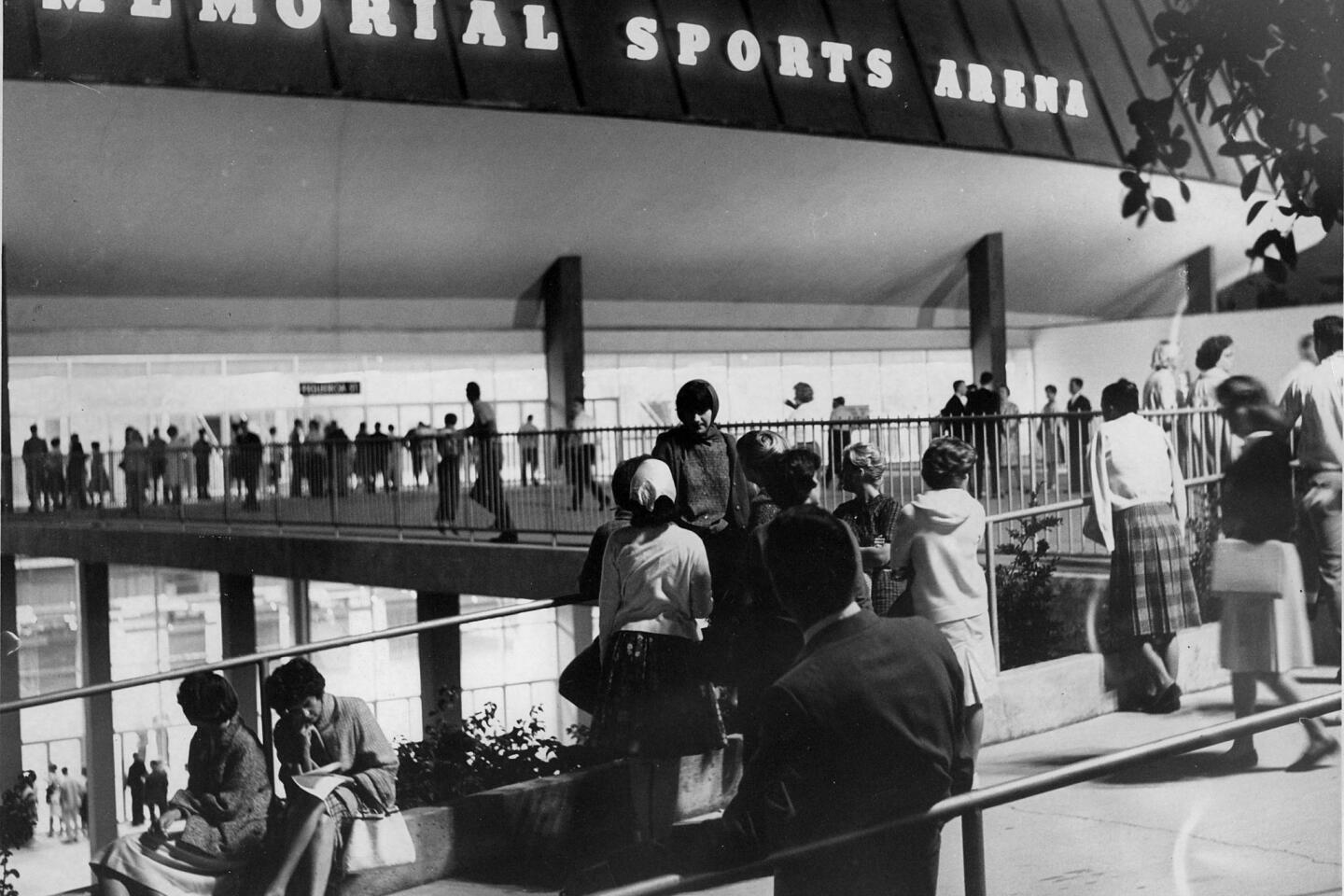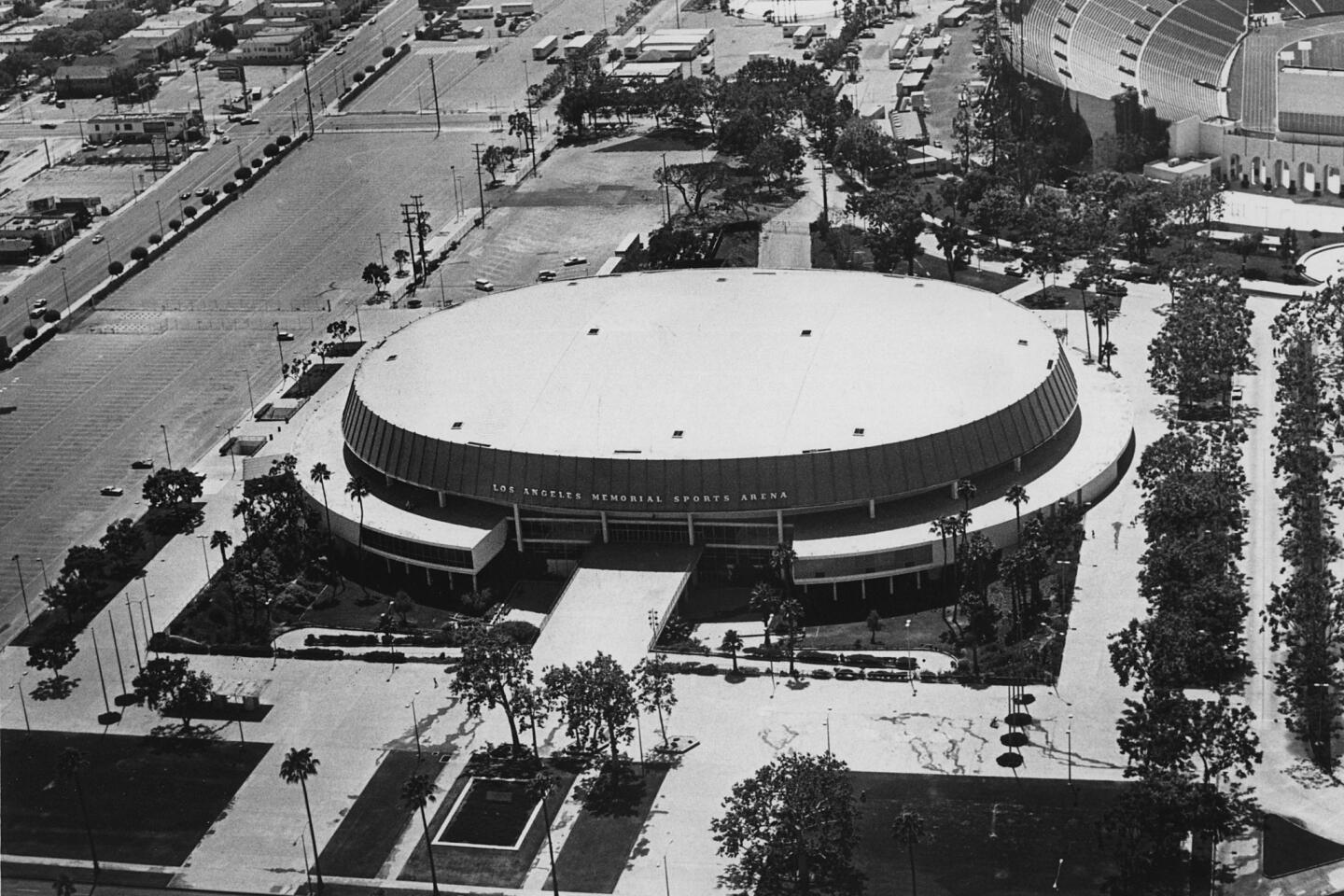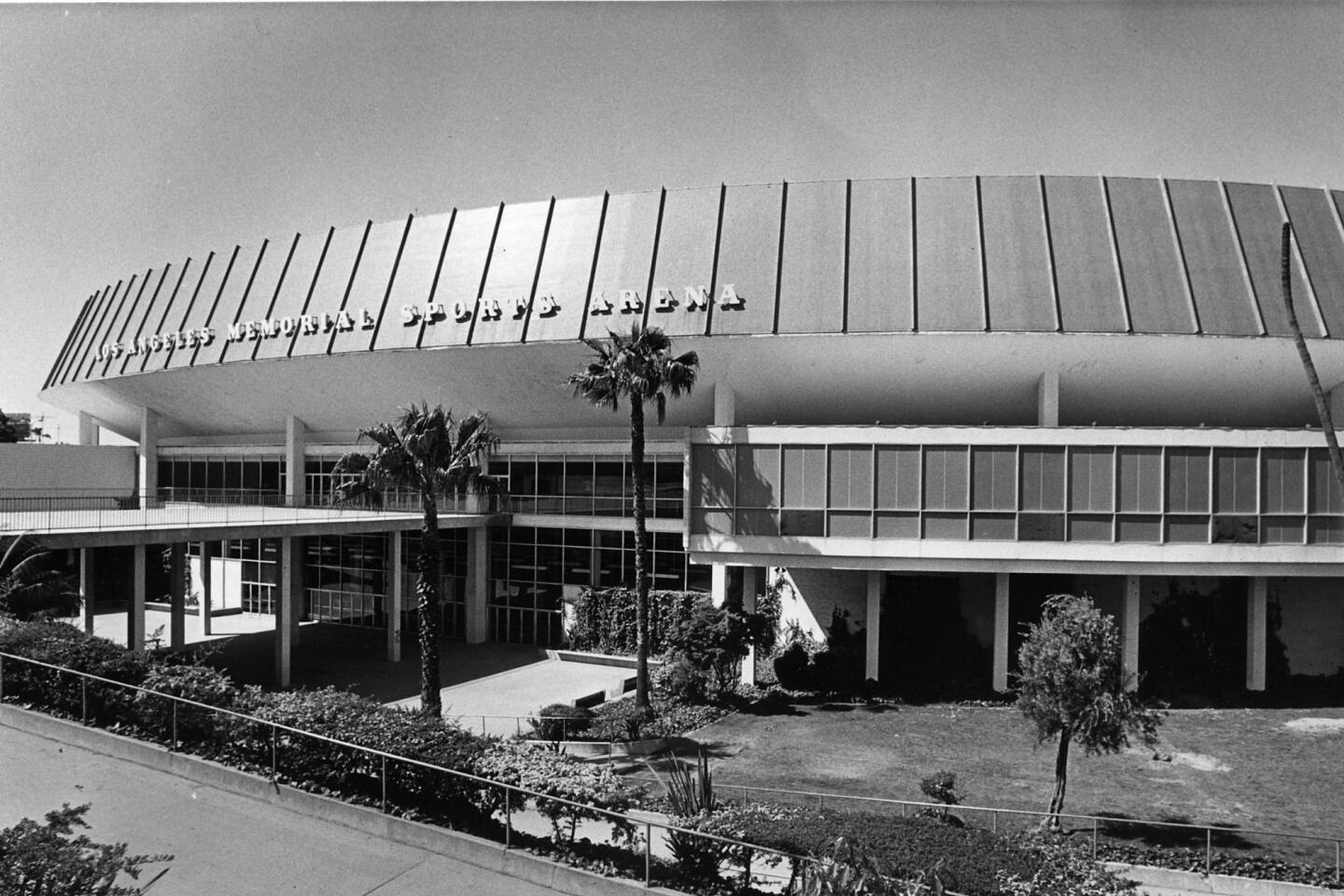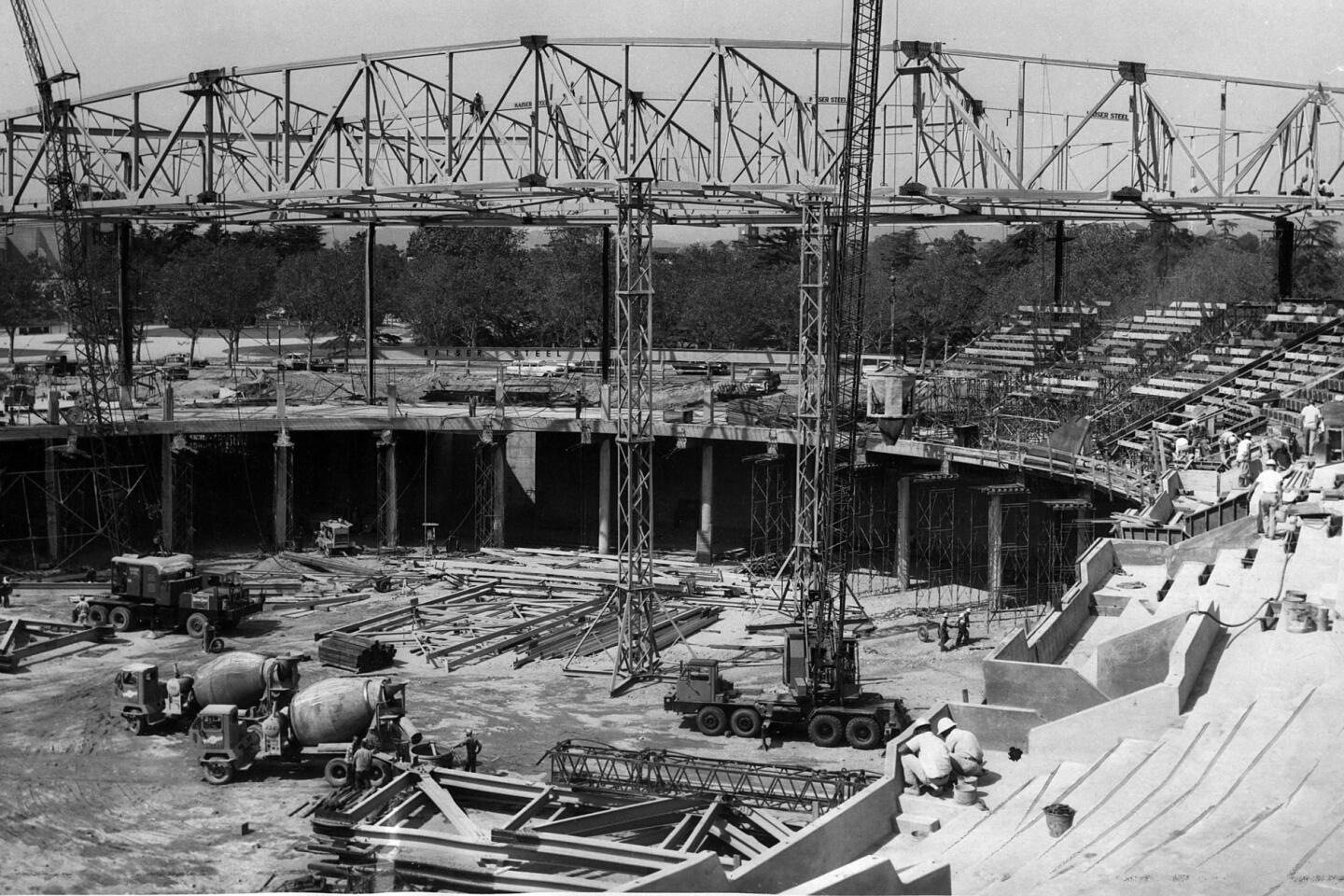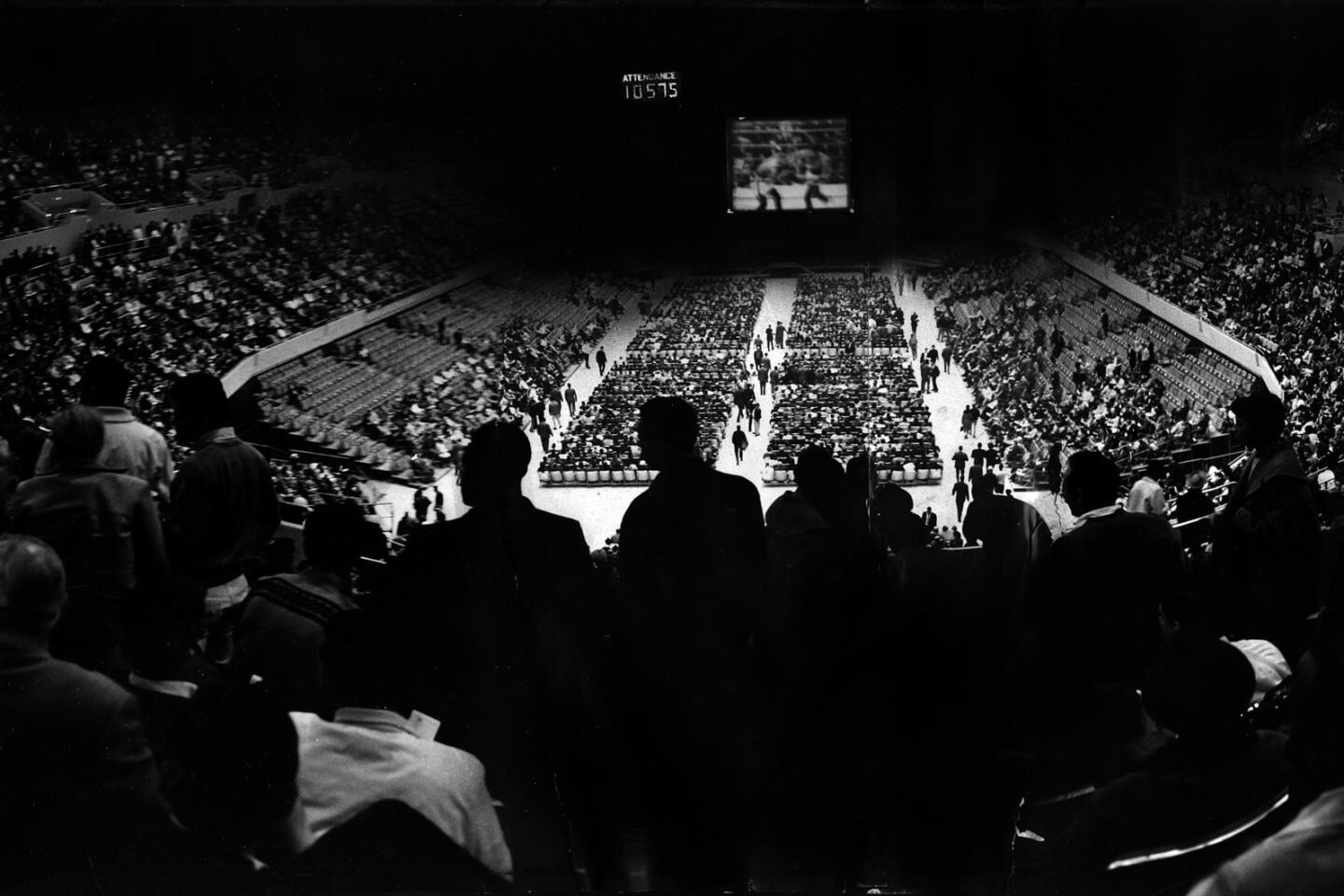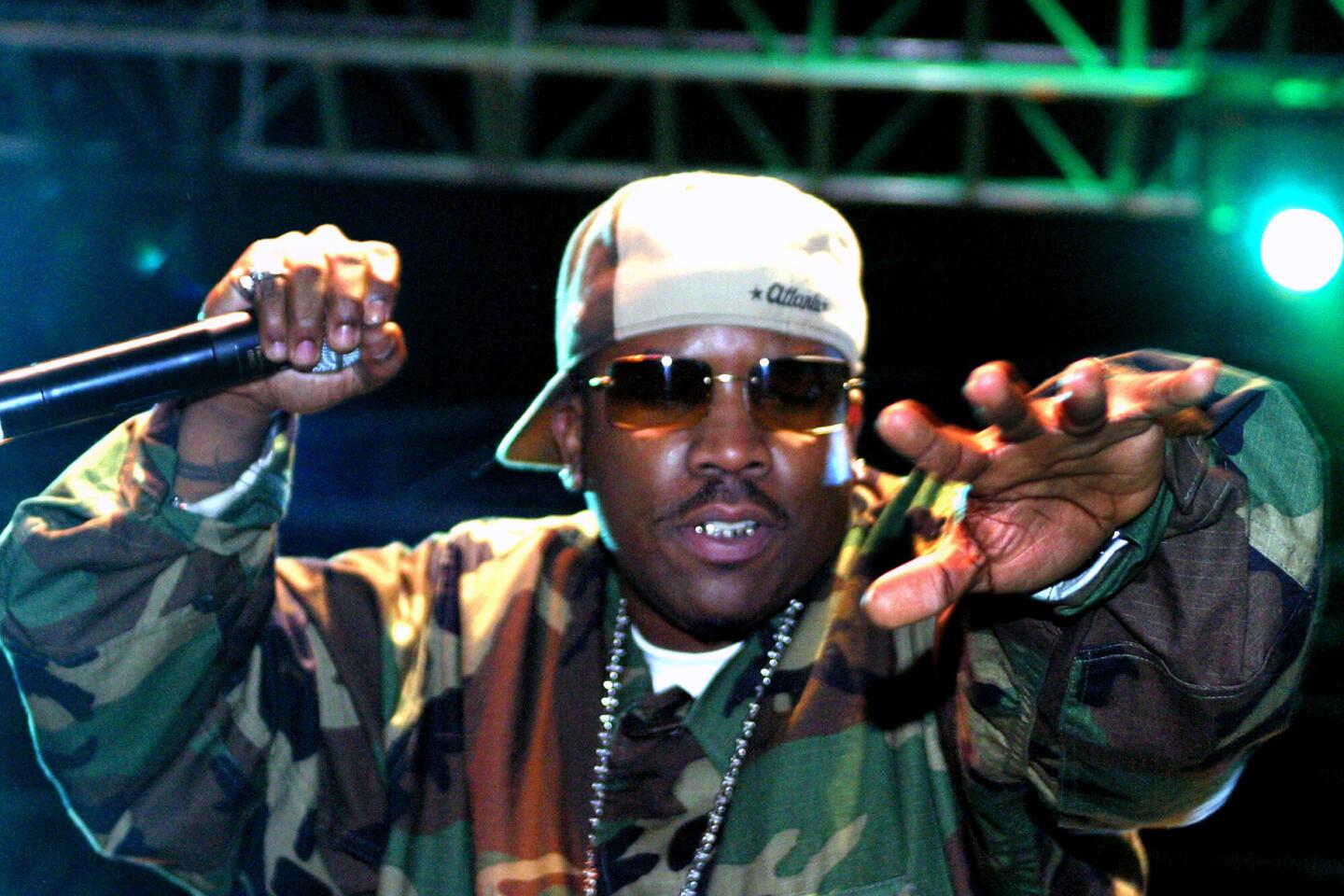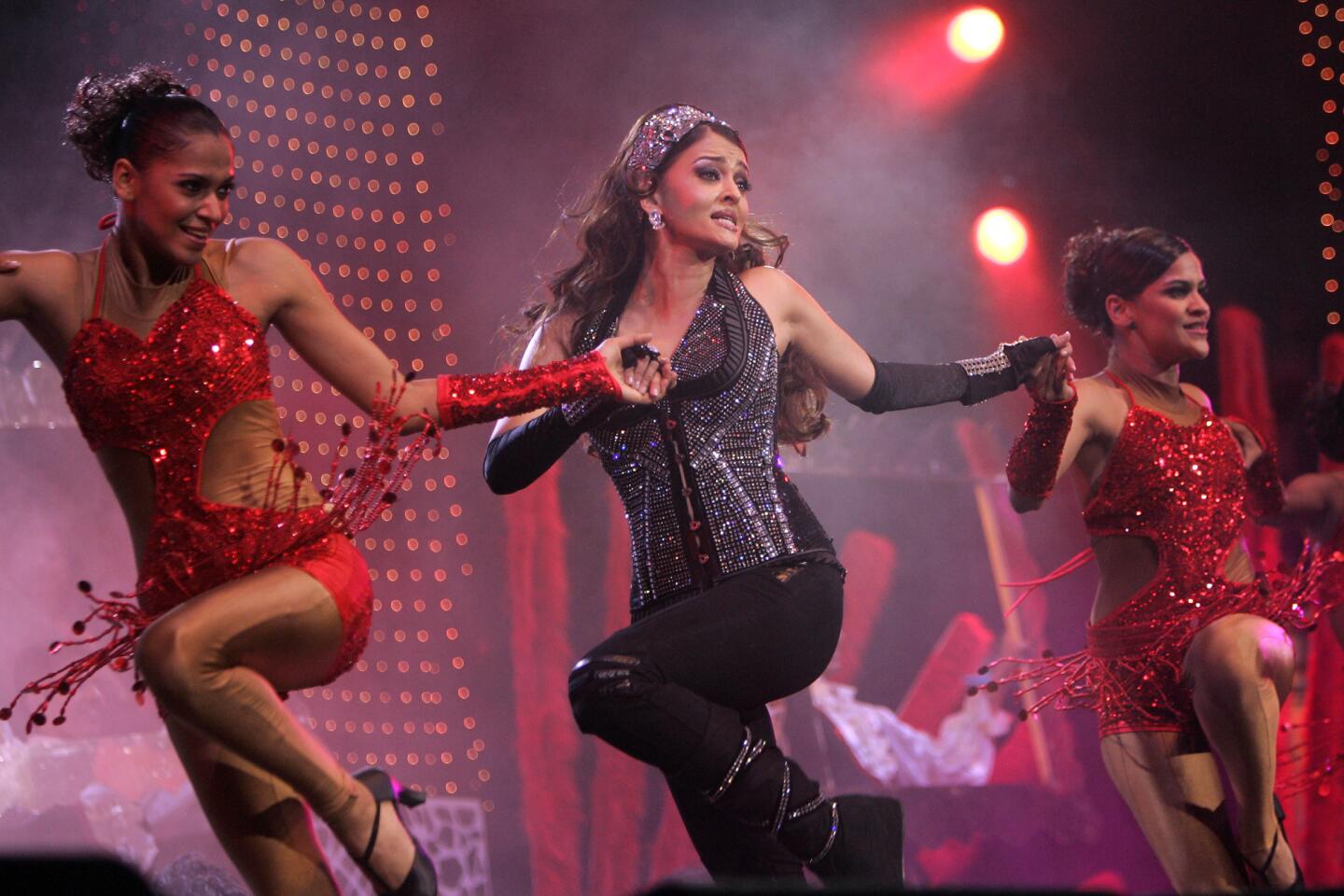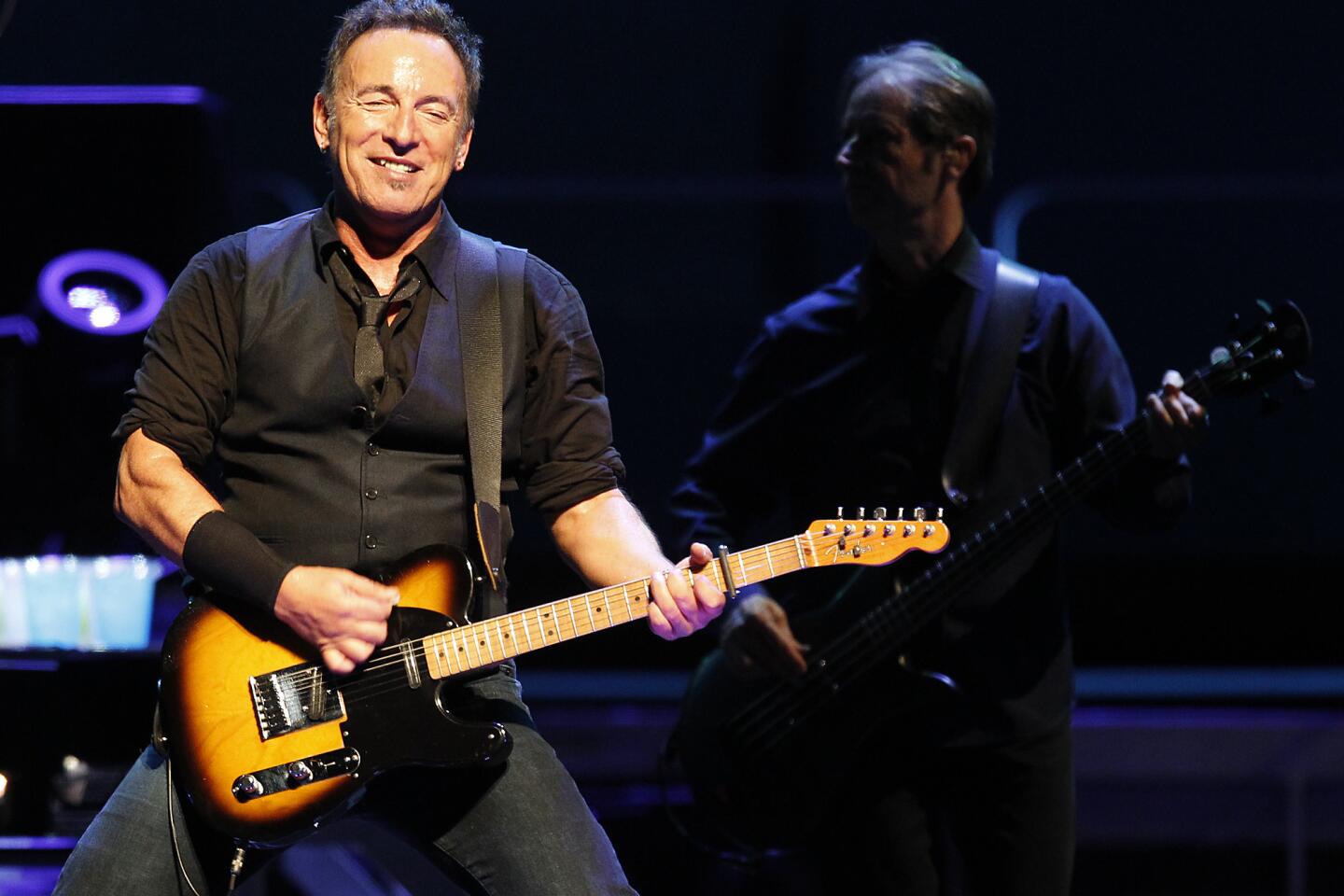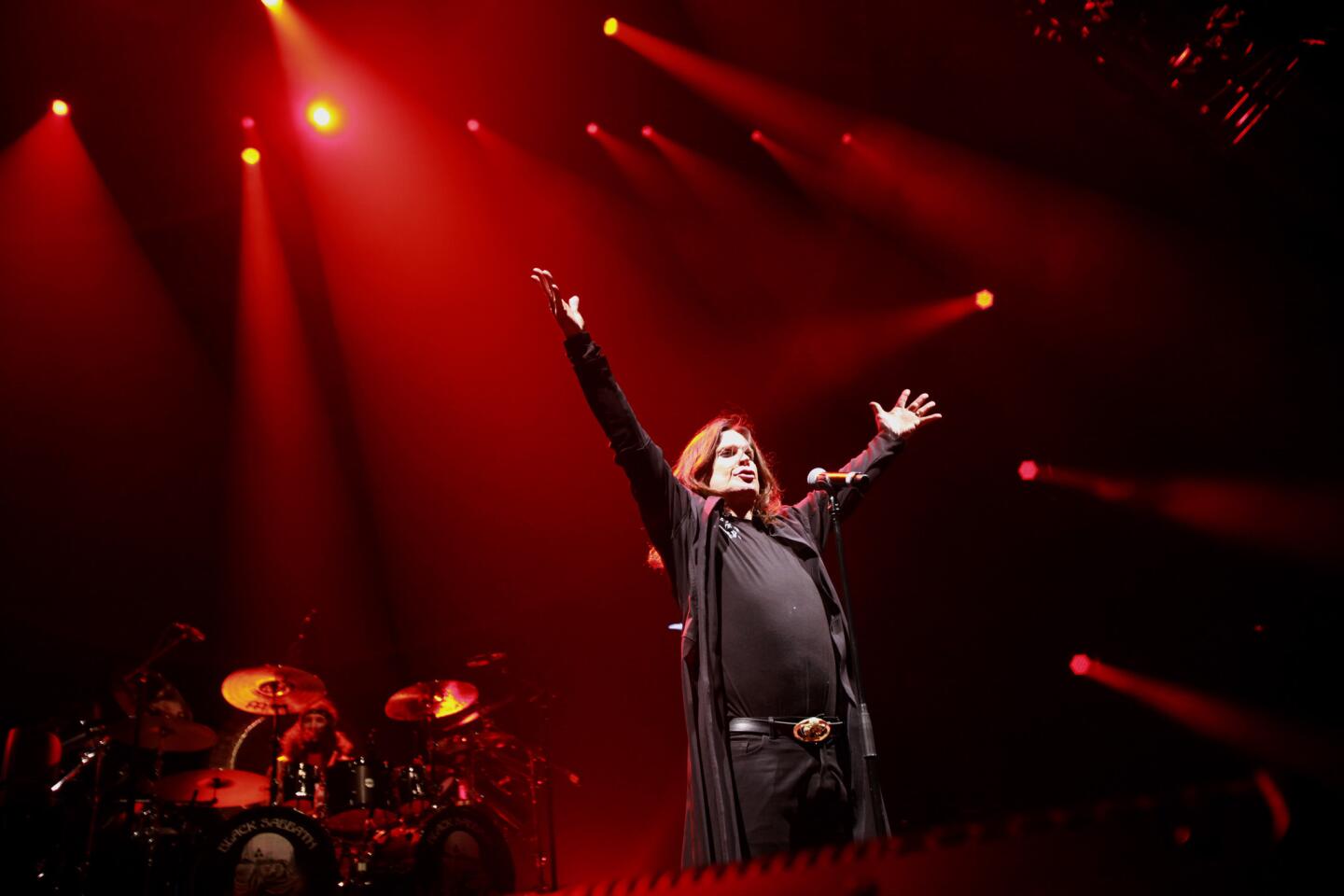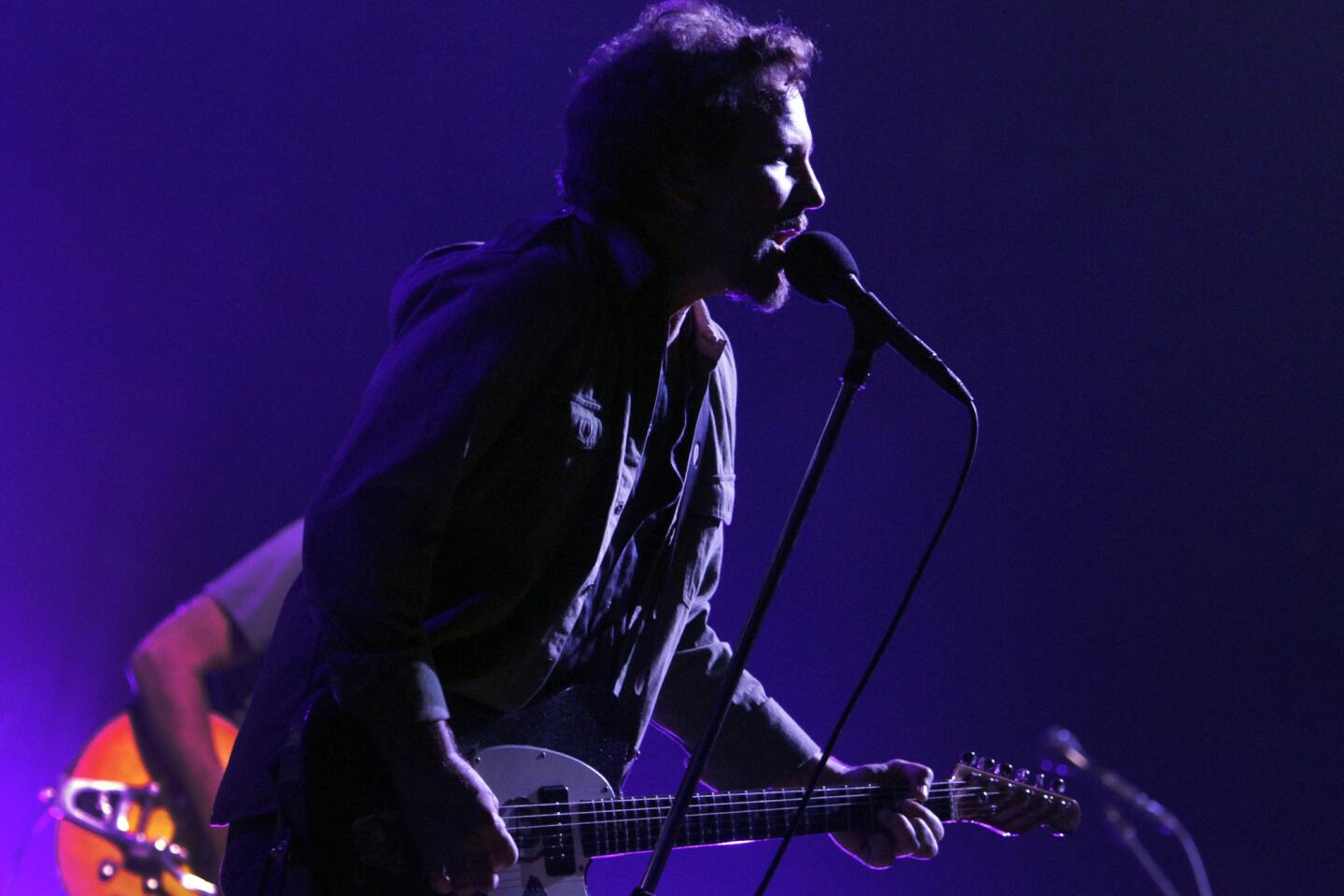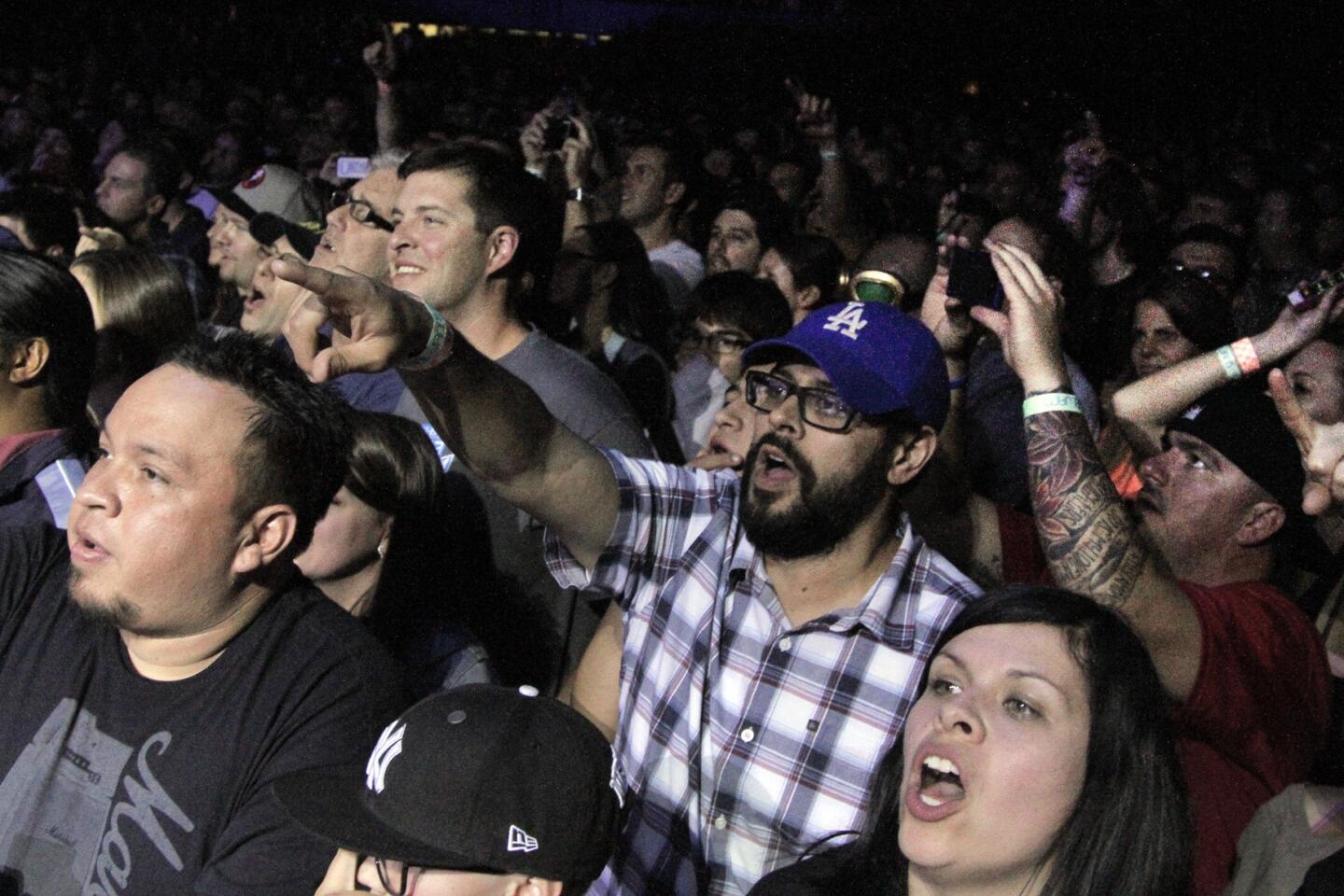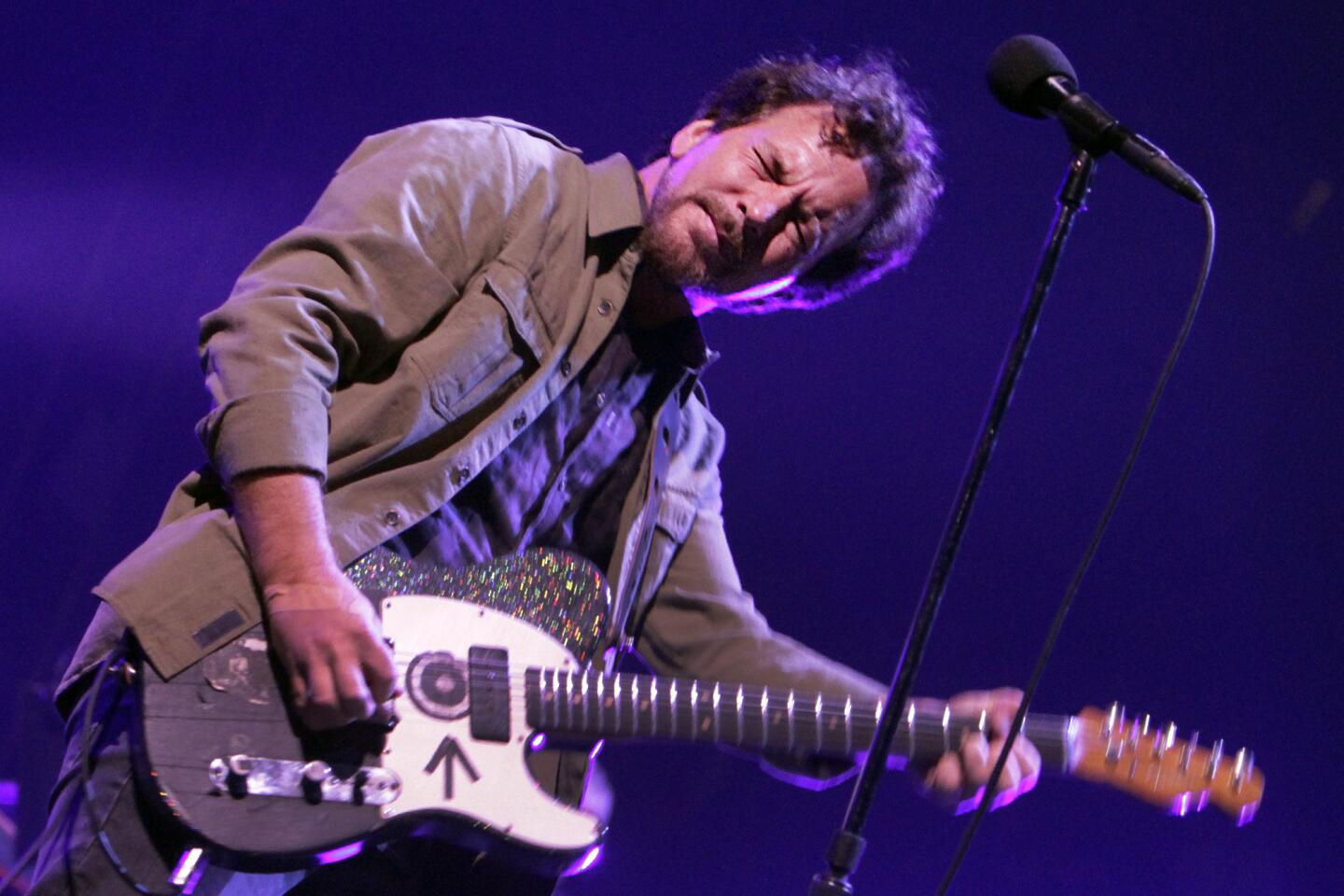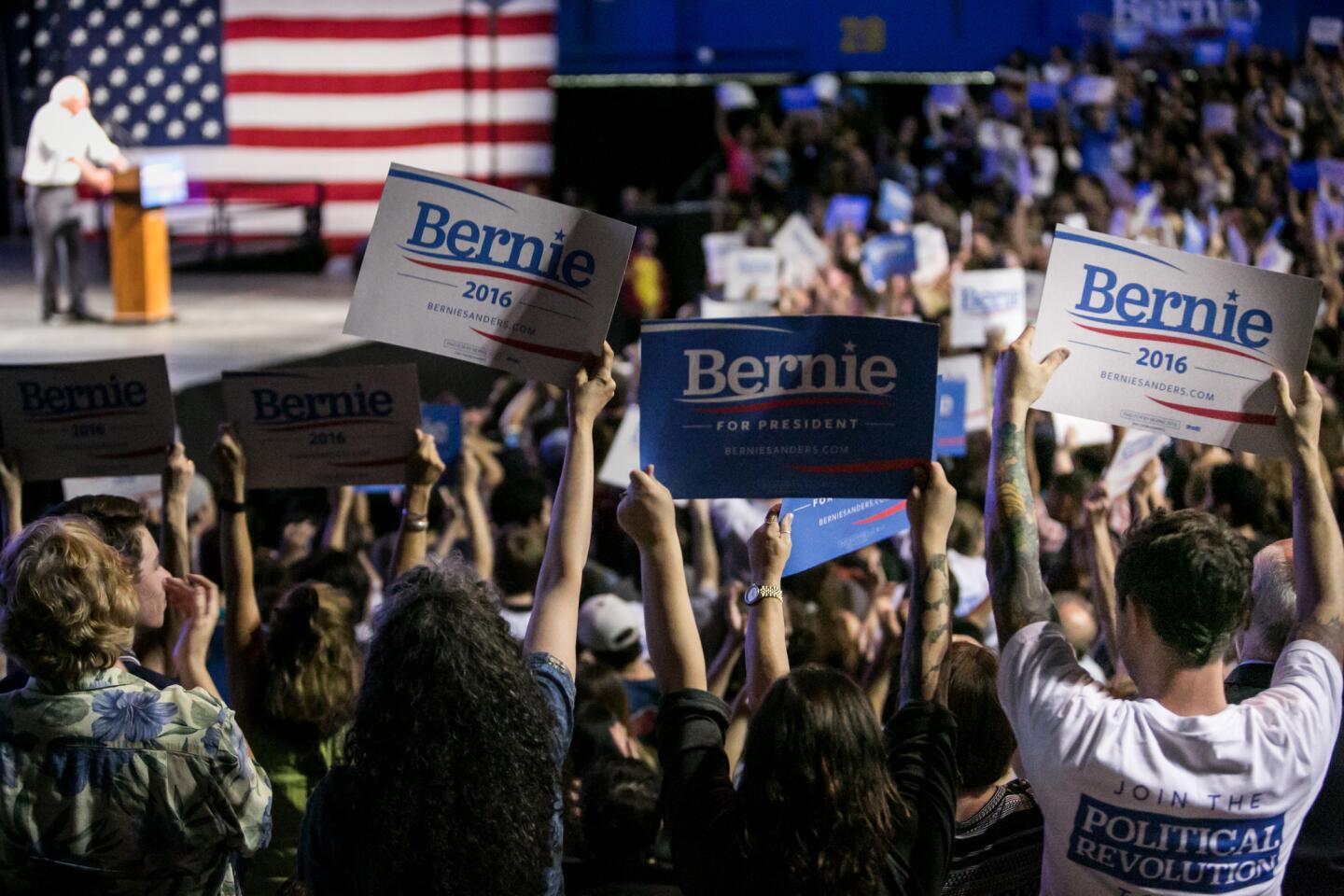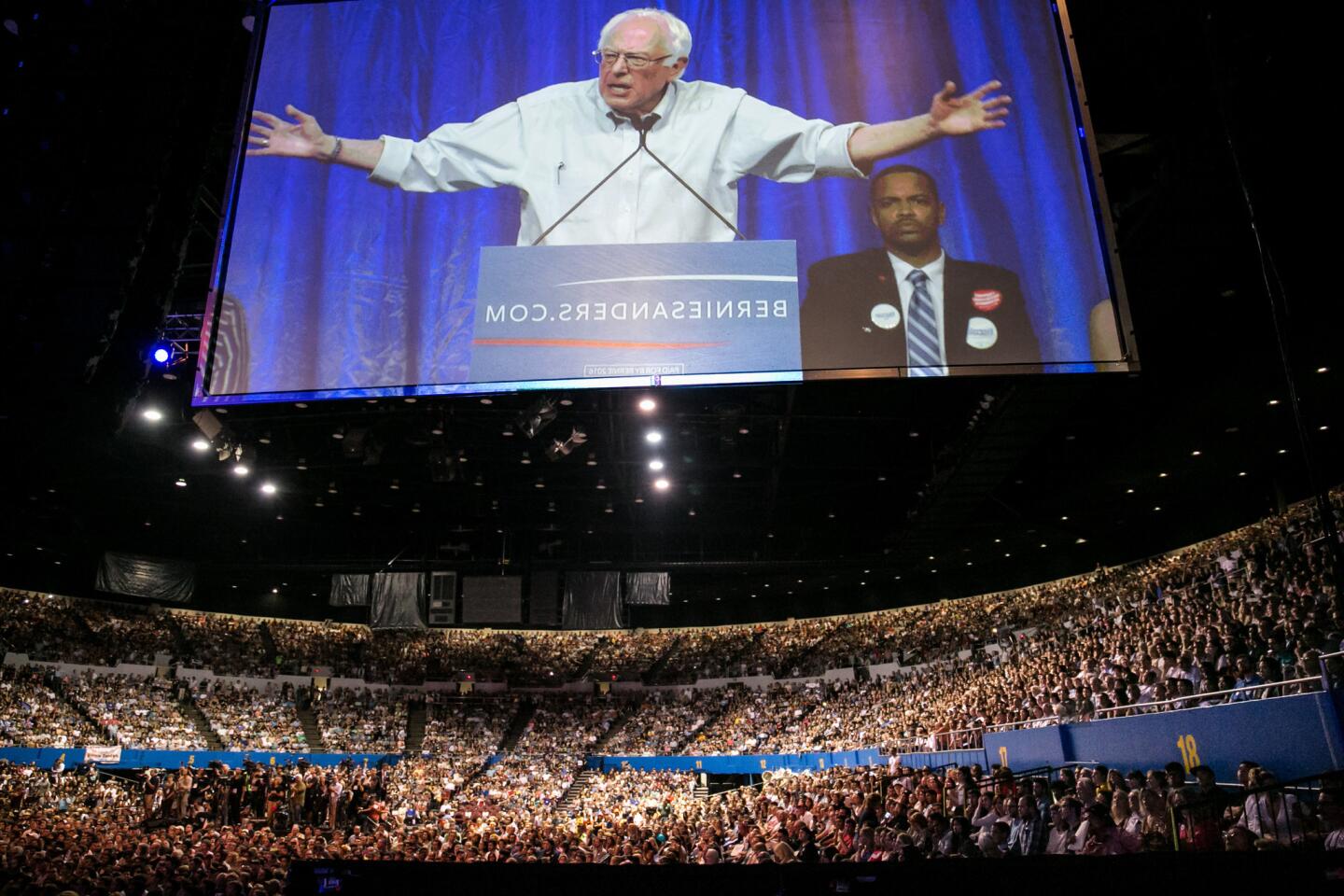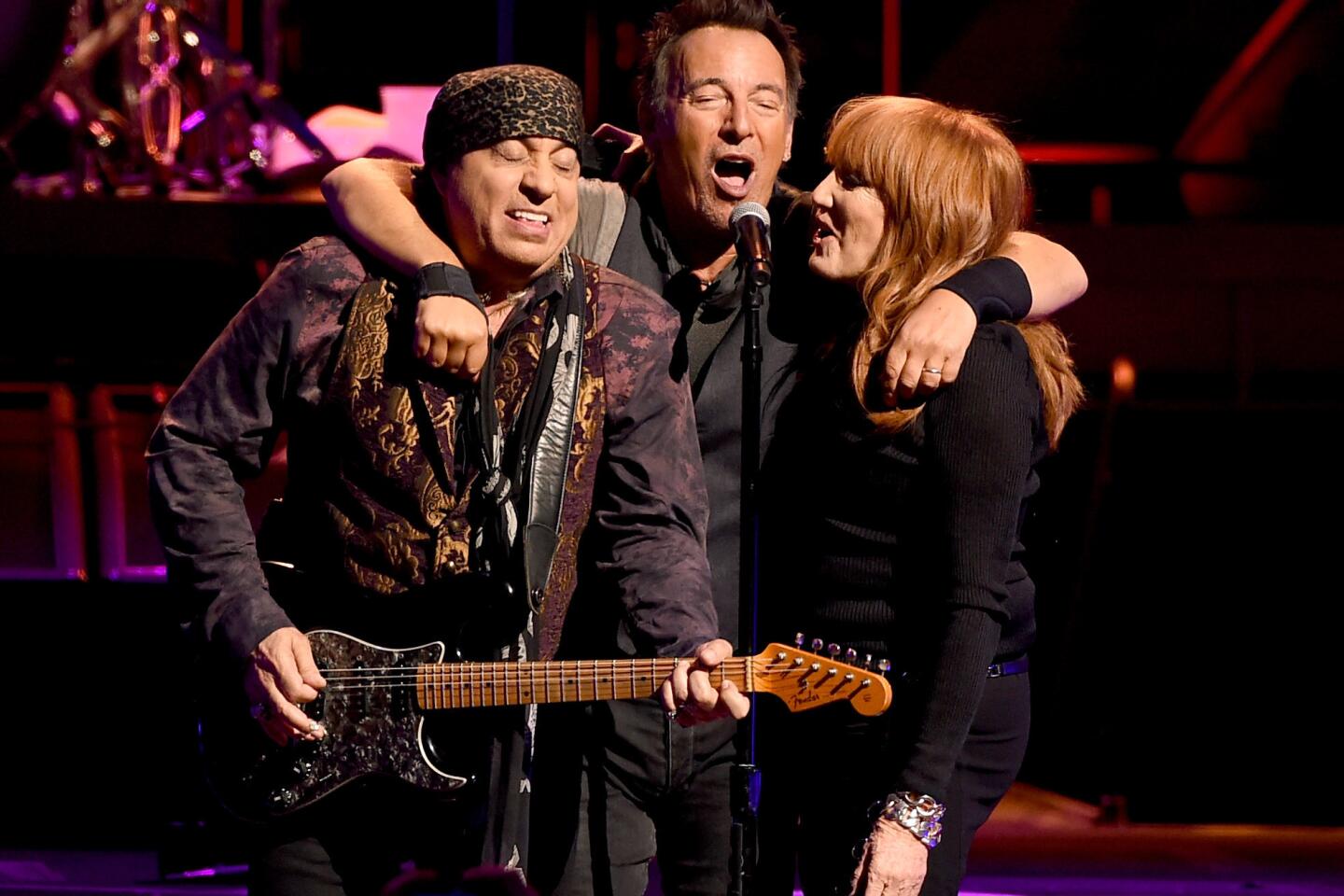Review: Bruce Springsteen & the E Street Band revisit ‘The River’ in L.A.
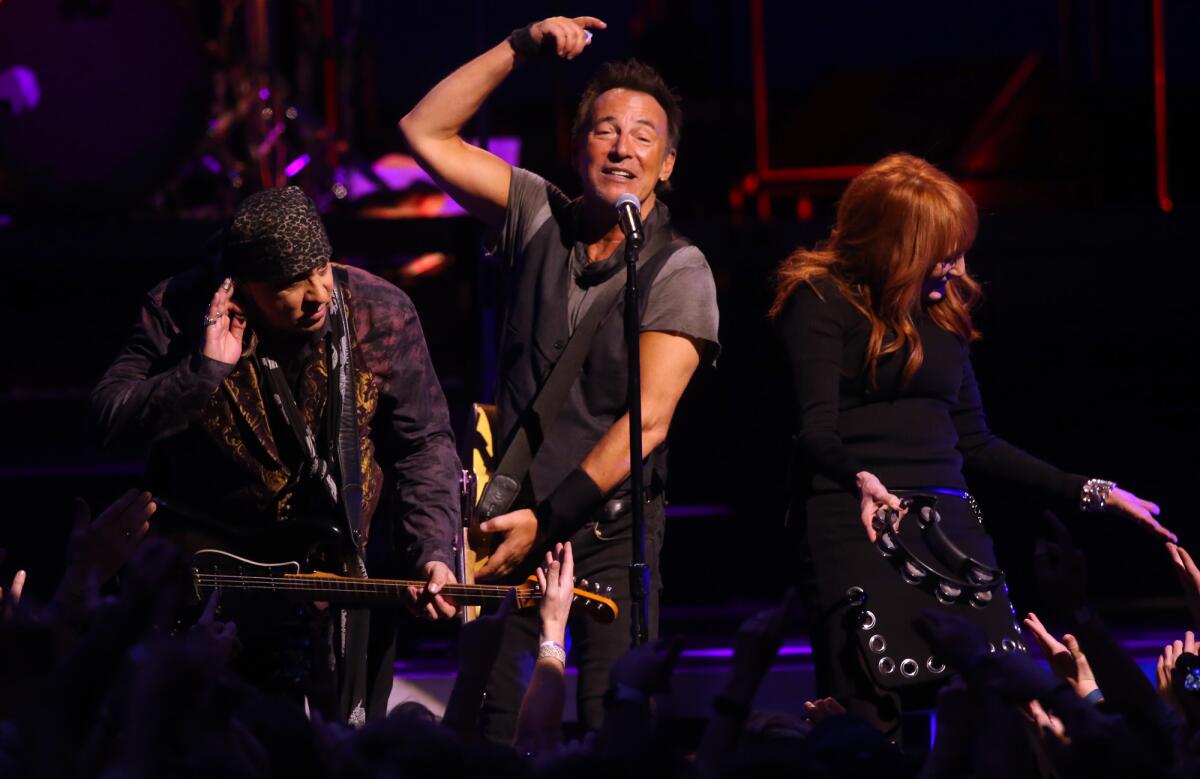
Steven Van Zandt, Bruce Springsteen and Patti Scialfa perform at the Los Angeles Sports Arena on March 15.
- Share via
In the pursuit of the things that matter most in life, “half measures avail us nothing,” states an adage that Bruce Springsteen seems to have had in mind when he made “The River,” the 1980 double album he’s revisiting on his new tour, three dozen years down the line.
It’s perhaps his most ambitious album, certainly his most sprawling -- a musically and thematically varied work he described as “my coming of age” album shortly taking the stage Tuesday in the first of his three sold-out nights in Los Angeles.
As many Springsteen aficionados know, to follow 1978’s “Darkness on the Edge of Town,” The Boss originally delivered a single album that was to be called “The Ties That Bind.” After having second thoughts about what he was really after, he withdrew it and returned to the studio to continue working.
“[Why] put out something that you don’t feel is what it should be,” he told an interviewer in 1981, “or that you feel -- and I don’t believe in tomorrows -- that ‘Oh, I’ll put the other half out six months from now.’
“You don’t know what’s gonna be happening six months from now. You may be dead, you just don’t know. It’s like from the very beginning, I just never believed in doing things that way. You make your record like it’s the last record you’ll ever make.”
Those comments are cited in Mikal Gilmore’s opening essay for the book accompanying the recent CD/DVD box set exploring that period in Springsteen’s life, “The Ties That Bind: The River Collection.”
He and the venerable E Street Band are performing “The River” in its entirety during the first part of the new round of shows. That’s something they didn’t do when it was released and became Springsteen’s first album to reach No. 1 on the Billboard 200 albums chart, holding that slot for four weeks and also giving him his first top-10 hit single, “Hungry Heart.”
Far from mere nostalgia, the show was a richly illuminated traversal exploring what happens when the dreams and idealism of youth run headlong up against the realities of adulthood and the compromises that come with it.
The youthful ideal of love, for instance, as Springsteen said early in the set, “is the easiest kind of love. The kind without consequences. The kind without responsibility,” and then, adding with a laugh, “the kind that doesn’t exist.”
There’s a through-the-looking-glass facet to these shows, both for Springsteen and the many fans who came of age with him through these songs 36 years ago.
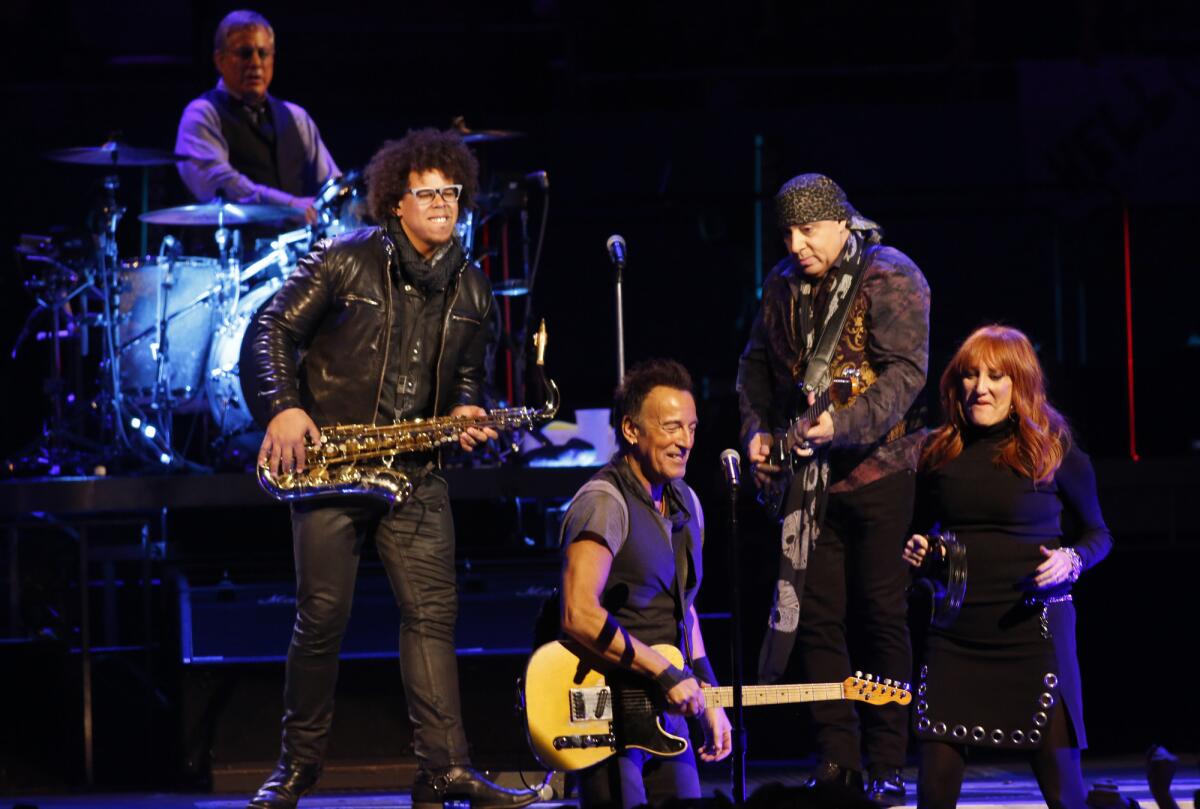
Max Weinberg, Jake Clemons, Bruce Springsteen, Steven Van Zandt and Patti Scialfa share the stage at the Los Angeles Sports Arena on March 15.
He was just entering his 30s, and most of his fans were in their 20s and 30s at that time. Now 66, Springsteen often finds himself on the other side of the table of the songs he wrote about coming to terms with what he called “the realization that we have a limited time to do our jobs, to raise our families and to try to do some good along the way.”
“Independence Day,” for example, takes on a very different tone being sung by the 66-year-old father of three, than when he sang it as a 30-year-old single rock star on the rise:
Now I don’t know what it always was with us
We chose the words, and yeah, we drew the lines
There was just no way this house could hold the two of us
I guess that we were just too much of the same kind
The album’s title track became an even more haunted reflection of a dream derailed -- ”Then I got Mary pregnant, and man that was all she wrote,” which Springsteen capped with a mournful falsetto coda that communicated all the pain one human soul could endure.
The master stroke of “The River” is the way Springsteen juxtaposed such anguish with the joy that life also can contain. He and the band also took the crowd along to pinnacles of ecstatic celebration in the likes of “Sherry Darling,” which gave saxophonist Jake Clemons a great opportunity to salute his late uncle, Clarence Clemons, and “I Wanna Marry You,” “I’m a Rocker,” “Cadillac Ranch” and “Out in the Street.”
Following the two hours it took to traverse “The River” from beginning to end, Springsteen and the band then shifted into overdrive for a second half that ran almost an additional 90 minutes.
It began with “Badlands,” and continued across his catalog to touch on “The Rising,” “Human Touch” (in a sweet duet with his wife, singer-guitarist Patti Scialfa, during which they went nose to nose on a single microphone), “Because the Night,” “She’s the One,” “No Surrender,” “Thunder Road,” “Born to Run,” “Dancing in the Dark” and, yes, “Rosalita” “Tenth Avenue Freeze-Out” and even a show-capping, rafter-rattling rendition of the Isley Brothers’ “Shout.”
His shows at the Sports Arena hold an extra measure of emotion as they constitute the swan song for the 59-year-old facility he’s played repeatedly since his first performances there in 1980 on the original tour for “The River.”
It’s a venue he’s fondly dubbed “The Dump That Jumps,” a nickname enshrined on banners posted outside and inside the arena for these shows, and “The Joint That Don’t Disappoint,” among others.
In recognition of its impending destruction, Springsteen dedicated a song to the venue: the title track from his 2012 album “Wrecking Ball.”
He plays two more performances at the Sports Arena on Thursday and Saturday.
Follow @RandyLewis2 on Twitter. For more on Classic Rock, join us on Facebook
ALSO:
Sony is betting on love for the Beatles lasting in a new $750 million deal
Radiohead announces concerts in Los Angeles, New York and Mexico City
More to Read
The biggest entertainment stories
Get our big stories about Hollywood, film, television, music, arts, culture and more right in your inbox as soon as they publish.
You may occasionally receive promotional content from the Los Angeles Times.
